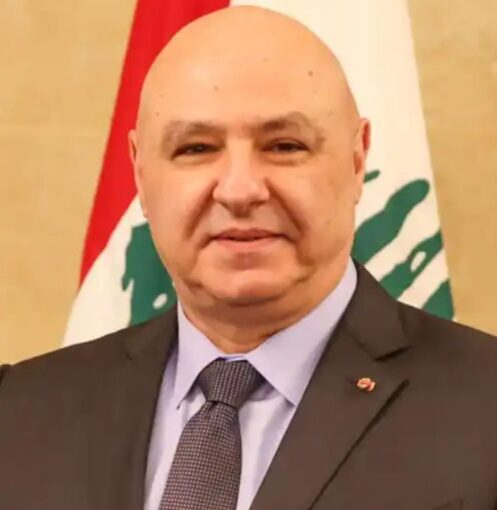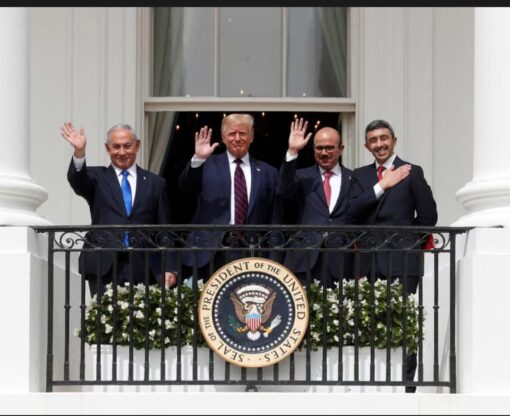Lebanon is intensifying diplomatic efforts to secure US support after an Israeli airstrike killed an entire family, sparking grief and anger as funerals took place in the southern region.
The deaths have amplified calls for Washington to intervene more forcefully, with Lebanese officials warning that continued inaction could further destabilize an already fragile Middle East.
Local residents carried the coffins of the victims through crowded streets, chanting against Israel while demanding justice. “We buried children today who had nothing to do with this war,” one mourner said, as thousands joined the funeral procession. “How many more families must be destroyed before the world acts?”
The attack, which Lebanese authorities described as a direct strike on a civilian home, left at least seven members of one family dead, including women and children.
Israel has not publicly commented on the specific incident but has defended its broader operations in southern Lebanon as necessary to counter Hezbollah activity. The incident has fueled anger among Lebanese citizens and politicians alike, prompting the government to push harder for US backing.
Officials in Beirut argue that only Washington has the influence to rein in Israel and prevent further escalation. “Lebanon seeks US support not because we are weak but because America holds the key to de-escalation,” a senior Lebanese diplomat said. “If the US does not act, the region could slide into an uncontrollable conflict.”
Funerals for the victims turned into both a display of mourning and a political rallying point. Religious leaders condemned the strike as a violation of international law, while opposition groups accused Western powers of double standards.

“The world moves quickly when attacks happen elsewhere, but when Lebanese children die, we hear only silence,” one cleric told mourners during prayers.
The strong turnout at the burial highlighted the deep sense of injustice spreading across the country, particularly in communities already weary of years of instability, economic crisis, and cross-border clashes.
The Lebanese government has submitted a formal complaint to the United Nations and is lobbying the United States directly. Officials believe that American pressure is essential to restrain Israel, given Washington’s longstanding alliance with Tel Aviv. “Our position is clear,” Prime Minister Najib Mikati said.
“Lebanon seeks US support to stop the killing of civilians and to prevent escalation. Without such action, the cycle of bloodshed will only continue.” His words reflected both desperation and frustration, as Lebanon struggles to balance domestic pressure for accountability with the geopolitical realities of relying on international mediation.
The Biden administration has so far responded cautiously, reiterating its support for Israel’s right to defend itself while urging restraint. US officials have not publicly committed to stronger measures, though diplomats acknowledge rising concern over civilian casualties.
Privately, some analysts suggest that Washington risks losing credibility in the region if it is seen as indifferent to Lebanese suffering. A former US State Department adviser commented, “If Lebanon seeks US support and receives nothing, the perception will be that America only cares about one side. That is dangerous for long-term stability.”
On the ground in Lebanon, the mood is volatile. Families of the victims expressed both heartbreak and rage, vowing that their loved ones’ deaths would not be forgotten.
“My sister and her children were innocent,” said a grieving relative outside the hospital morgue. “If the Americans truly believe in human rights, let them prove it now.”
Protesters later gathered in front of the US embassy in Beirut, holding signs that read “Our blood is not cheap” and “Stop arming Israel.” The demonstration was largely peaceful, though it underscored the growing resentment toward Washington’s perceived inaction.
The Israeli military has intensified operations along the border in recent weeks, citing increased rocket fire and the threat of Hezbollah infiltration.
Lebanon disputes that civilian areas targeted by strikes were being used for military purposes, pointing to incidents like the family’s home being destroyed as evidence of indiscriminate attacks.
International human rights organizations have also called for investigations into possible violations of the laws of war. Amnesty International issued a statement saying, “the killing of entire families in their homes demands accountability. All parties must protect civilians, but the scale of destruction in Lebanon is unacceptable.”
Meanwhile, political factions inside Lebanon are divided on how to respond. Some demand stronger resistance against Israel, while others emphasize diplomacy to avoid dragging the country into another prolonged war.
The government is attempting to walk a fine line, pressing for international mediation while avoiding steps that could provoke a wider conflict. The key, officials insist, lies in persuading the US to take a firmer stance.
“We are asking for fairness, not favors,” a Lebanese foreign ministry official said. “Lebanon seeks US support to stop civilian deaths. If America does not act, history will judge its silence.”
For many Lebanese, the funerals of the slain family symbolized not just a local tragedy but the broader vulnerability of their nation caught in regional power struggles.

The images of small coffins carried through the streets have already become a rallying cry for activists demanding accountability. International attention has been sporadic, overshadowed by other global crises, but Lebanese voices insist they will not be ignored.
A university professor in Beirut remarked, “This war is not only about rockets and borders. It is about whether Lebanese lives matter. The answer will be clear in how the United States responds.”
As dusk fell on the day of the burial, the grief of the community turned into quiet defiance. Families lit candles outside the destroyed home, vowing to keep the memory of the victims alive.
Their message was directed not only at Israel but at Washington. “America has the power to stop this,” one mourner said softly. “If Lebanon seeks US support and America looks away, then we will know where we stand.”
The tragedy has added urgency to diplomatic discussions in both Beirut and Washington, with some insiders suggesting that the US could propose a temporary ceasefire framework.
Whether such a move materializes remains uncertain. For now, the funerals stand as both a symbol of Lebanon’s pain and a test of America’s willingness to act. As one Lebanese lawmaker concluded, “The world is watching. Will the United States help end the bloodshed, or will it let Lebanon bleed alone?”


